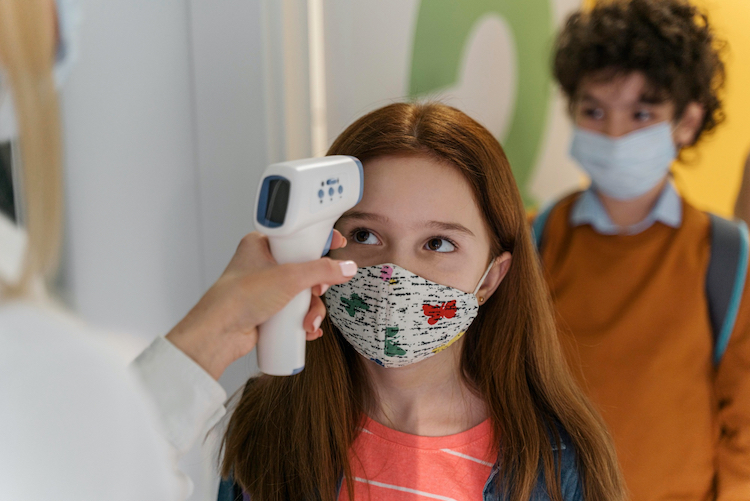Keep an Eye on Your Student’s Mental Health This Back-to-School Season
 While the pandemic caused widespread disruption to learning, one of the biggest concerns, for students of all ages, has been how it has affected their mental health.
While the pandemic caused widespread disruption to learning, one of the biggest concerns, for students of all ages, has been how it has affected their mental health.
For parents concerned about how their students are handling the new school year, here are five suggestions mental health experts say can help them monitor their child’s mental health.
1. Be proactive
Dr. Richard Martini, a child and adolescent psychiatrist at the University of Utah, says a lot of anxiety for students comes from the unknown, so help walk them through the steps – sometimes literally.
If you don’t have access to the actual school grounds early, looking at a map in “street view” on your phone or computer can help. Get them used to talking about class or recess. Ask them what they want to eat for lunch. The more questions, Martini says, the more real it becomes: “What are they excited about? What are they looking forward to?”
2. Ask about the good and the bad
Asking questions is the best way to understand how students are doing. But for older students, especially, if you’re only asking about the good things, you may not get the full picture.
“When you’re talking to your student, ask them about what’s going well, but also be very clear and ask what isn’t going as well,” says Nathaan Demers, a clinical psychologist in Denver who helps run YOU at College, an app designed to connect students with mental health resources. He says, don’t shy away from the hard questions with your kids – ask them about the challenges they’re facing, too.
3. Keep an eye on changing behavior
“One thing that can admittedly be challenging,” Demers acknowledges, is that “a lot of the common signs of the onset of mental health symptoms are very much those of major transitions.”
Things like changes in sleep, increased irritability, increased weight gain or changes in appetite can signal to clinicians that there may be an underlying issue. But for incoming college students, he adds, “a lot of those things can naturally happen … with students going away from home for the first time.”
For younger students, one of the most common warning signs is irritability with school or teachers, says Martini.
4. It’s not just COVID
The number of students struggling with mental health has been rising for years, says Sarah Lipson, an assistant professor of public health at Boston University. While the past two years have been especially challenging, Lipson says not to belittle students’ feelings by explaining them away with the pandemic. In an academic year where there is a push for normalcy some students may not be ready to return to business as usual.
Lipson says, “One of the most powerful specific symptoms that we see— it’s also the strongest predictor of students dropping out — and that’s a lack of interest in their usual activities.”
5. Lend a hand
All of the experts we spoke with recommend that parents know about the resources available, and be ready to step in to help their children find the help they need.
Some in-person resources include talking with a counselor at school or finding an on-campus group like Active Minds. But often virtual resources are the easiest first step. In Demers’ YOU at College app, students can input their symptoms and find recommendations for nearby resources. In a crisis situation the easiest option for families is to text HOME to 741741 to connect via phone with a trained counselor.
Excerpted from “Keep an Eye on Your Student’s Mental Health This Back-to-School Season” from NPR. For additional details, read the full article online.
Source: NPR | Keep an Eye on Your Student’s Mental Health This Back-to-School Season, https://www.npr.org/2022/08/22/1118485445/keep-an-eye-on-your-students-mental-health-this-back-to-school-season | © 2022 npr
A screening can help you determine if you or someone you care about should contact a mental health professional. Care Coordinators can arrange a free 30-minute Care Consultation so you can explore options with an expert. Call or email us at 650.688.3625 or careteam@chconline.org to set up an initial Consultation appointment.





